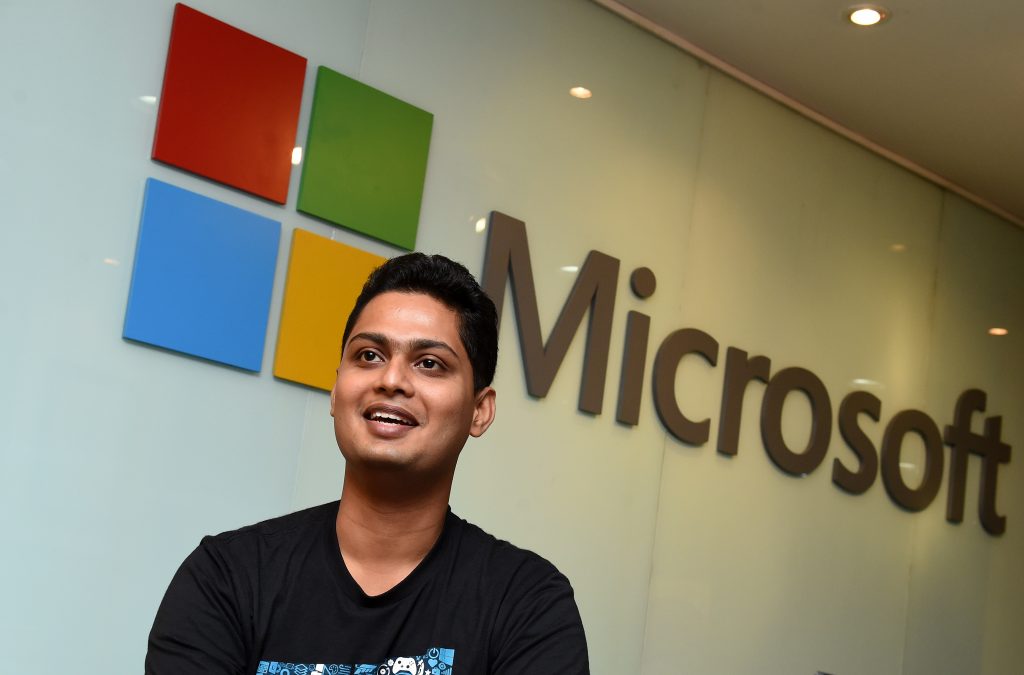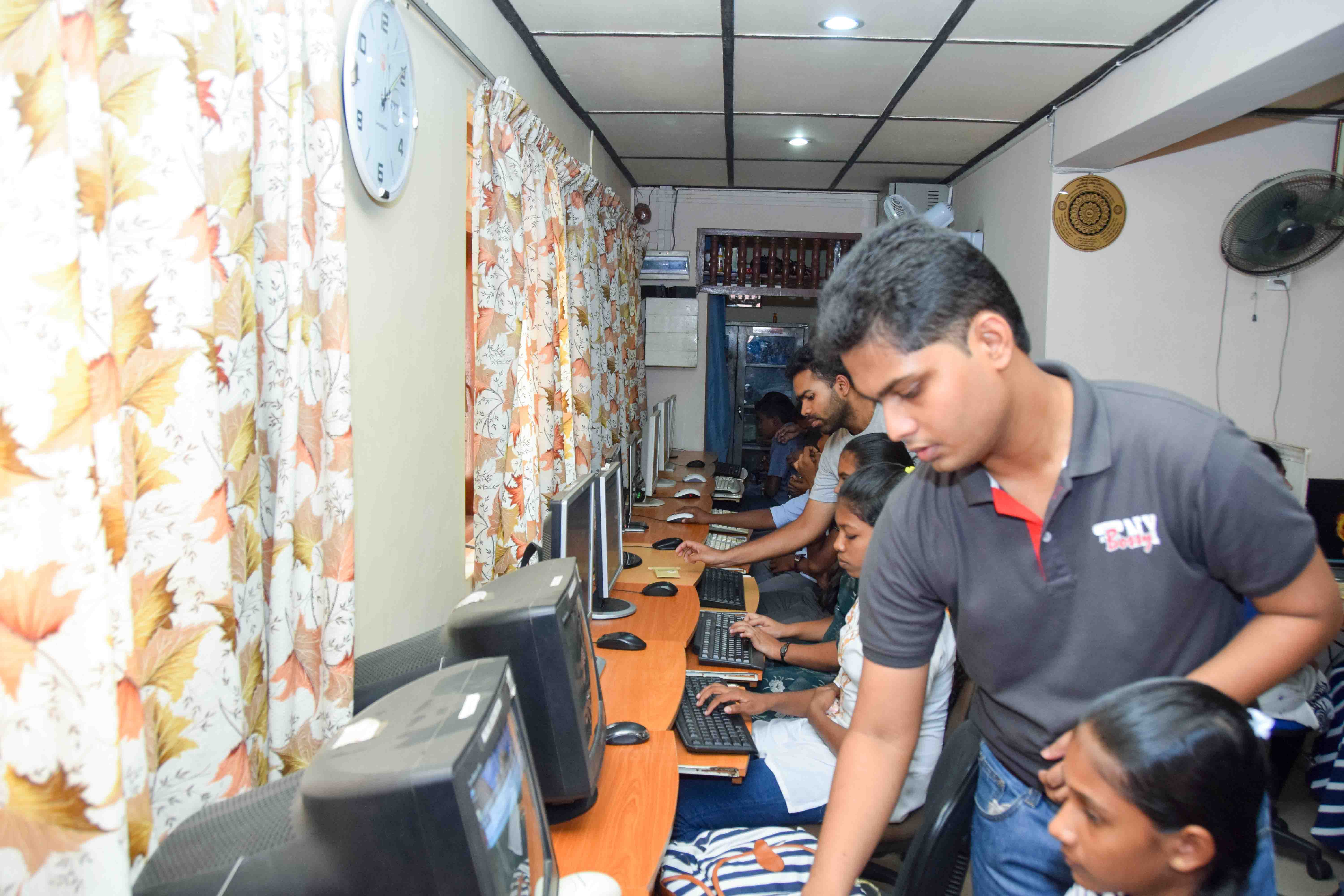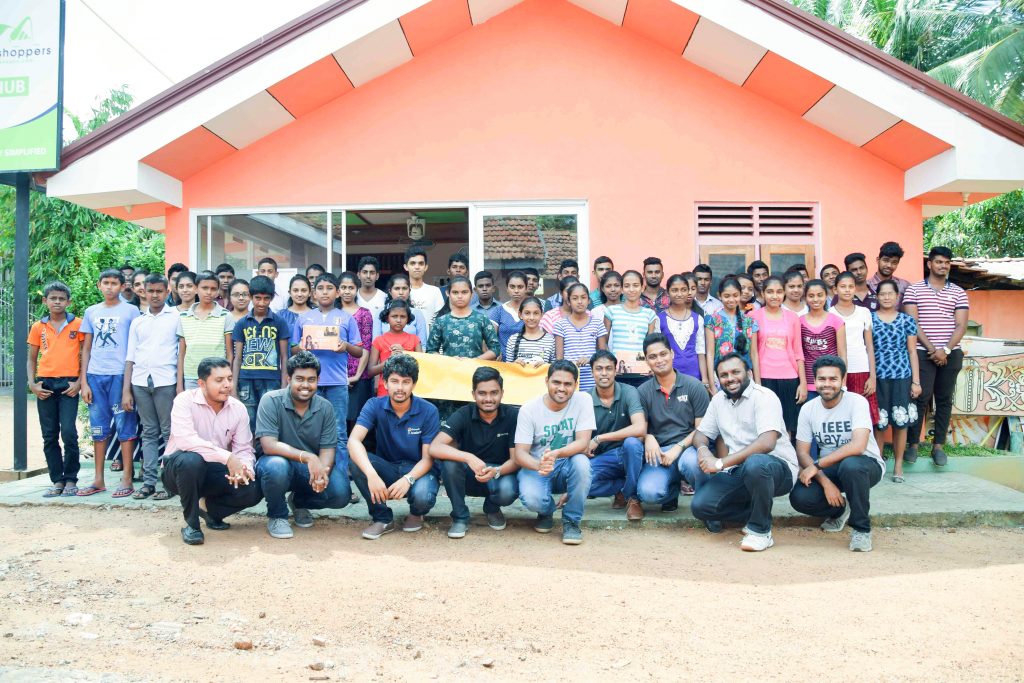
Building Sri Lanka’s young programmers, bit by bit
Winning an award for creating a digital dictionary while he was still in school has inspired Prabhath Mannapperuma to foster a legion of budding young programmers in remote corners of Sri Lanka.
Mannapperuma, 24, heads a team of volunteers who fan out all over the country firing up students with the micro:bit, a tiny programmable device, and the message that writing computer code is no arcane art but within the reach of inquisitive fingers and curious minds.
“Using a keyboard to type in code is not interesting for kids,” says Mannapperuma, an IT professional and self-styled tech-evangelist. micro:bit’s more appealing block-based programming designed to familiarize youngsters with coding and interconnectivity spurred Mannapperuma to introduce it in his country.
He approached the UK-based Micro:bit Foundation a year ago with his idea of encouraging school children outside the more privileged urban areas to learn coding skills.
With the Foundation’s backing, he created an online group to enlist like-minded people who would go to distant villages and towns carrying the micro:bit developed by Microsoft and the BBC.
The volunteers instruct children aged 11 to 18 in using the micro:bit website to write simple commands for the device enabling it to act as a motion detector, sound sensor or as a message flasher among other things.
Over 2,000 children in schools and government-sponsored computer labs have been taught how to write script for the micro circuit board in the first seven months of the year.

Four keen students have already submitted entries for the Micro:bit Foundation’s Mothers and Carers worldwide challenge and were mentioned in the final tally of winners.
Their ideas for lightening the load of their mothers and caregivers include an alarm that rings when the trash can is full, a fridge door alarm, a pressure gauge that measures the weight of a portable cooking gas cylinder and a sensor which switches off a fan that has been left running.
These projects may be baby steps for hardcore programmers, but for children with limited access to technology, they are giant strides, noted Mannapperuma.
“Kids come up with new solutions for their day to day problems. Having the required computational thinking is vital for their future.”
Mannapperuma’s micro:bit Sri Lanka User Group (SLUG) is a non-profit organisation run by some 150 volunteers drawn from professional organisations and universities.

“Our volunteers are passionate about what they do. Now, we are requesting the general public to be part of our organisation as volunteers,” said Mannapperuma who has plans for more collaborative workshops and micro hackathons in the months ahead reaching some 5,000 students. About 100 micro:bits have also been distributed to volunteers.
Mannapperuma’s first group of potential programmers came from his hometown Asswedduma, a village nearly 90 kilometres from the capital Colombo, where he himself dabbled with mobile phone applications as a youngster.
At 13, he participated in a competition held by Microsoft Sri Lanka for students. Although he did not win any prizes then, he earned a merit award two years later when he created an English-to Sinhala online translator for a lexicon of words from his English Literature textbook to help his friends doing their first public exam that year.
“It’s too early to identify the impact of our project,” says Mannapperuma. However, the SLUG website’s alternative versions in Sinhala and Tamil, the two main languages spoken in Sri Lanka along with English, have proved successful with many children registering to learn coding skills.
The SLUG is offering trilingual support and video tutorials in local languages to help young learners. They seek more volunteers as they expand in all 25 districts of the country which is emerging from a decade-long Tamil separatist war that ended in May 2009.
Mannapperuma has an ambitious mission: to increase the programming skills of every child in Sri Lanka. “With the help of micro:bit, we can lay the foundation of programming to enrich their lives.”
Discover our free resources to empower all young people through computer science education and digital skills by visiting http://microsoft.com/digitalskills
To read more about Microsoft Philanthropies’ work to build future ready generations in Asia, click here.













